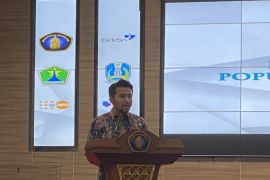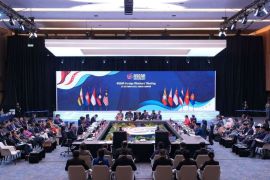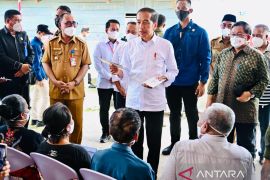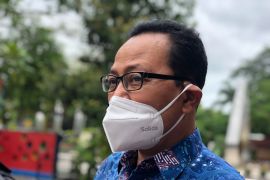"Ranked at the 133rd position among 188 countries, Indonesia is among the best performers with regard to HDI in the Asia Pacific," Country Director of UNDP Indonesia Christophe Bahuet said.Jakarta (ANTARA News) - The United Nations Development Program (UNDP) has recorded that Indonesias human development index (HDI), comprising per capita income, life expectancy, and education indicators, has increased rapidly in the past 25 years.
"Ranked at the 133rd position among 188 countries, Indonesia is among the best performers with regard to HDI in the Asia Pacific," Country Director of UNDP Indonesia Christophe Bahuet noted at a press conference here on Wednesday.
The increase in Indonesias HDI, with 0.712 for men and 0.66 for women, is driven by some factors, such as a 135.4 percent rise in the per capita income, increase in life expectancy by five to eight years, and an average increase of up to 4.6 years in the period of education.
Although the HDI has improved, the UNDP does not view it as a significant achievement, as the actual situation in society is usually much more complex.
In Indonesia, 140 million people earn less than Rp20 thousand per day, and 19.4 million others suffer from malnutrition.
Meanwhile, two million children under the age of one year have not received full immunization and the maternal mortality rate is 305 deaths per 100 thousand live births.
"Another shortcoming is also apparent from the lack of access to basic services, with nearly five million children not able to attend school. Papua has the highest school dropout rate in children," Bahuet said.
Every country, including Indonesia, has some sections of society that are lagging behind others due to multidimensional issues, such as gender inequality and the lack of womens empowerment.
According to UNDP Indonesias advisor on Sustainable Development Goals Ansye Sopacua, neglecting women will result in several risks that can lower the HDI index, such as low enrollment in schools, inadequate access to healthcare services, and low work participation.
With a gender development index (GDI) of 0.9, only 42.9 percent Indonesian women gain education until senior high school as compared to 51.7 percent men.
Womens labor participation rate of 50.9 percent is too far adrift as compared to 83.9 percent among men.
"If gender equality is achieved, the GDI will indicate 1. The gender gap not only occurs in developing countries but also in China whose economy is growing rapidly," Sopacua explained.
In order to ensure that human development has a positive impact on all Indonesians, the UNDP has proposed four strategies to be implemented at the national and regional levels, such as special policies for disadvantaged groups and specific measures for groups with particular needs, in this case, women.
Furthermore, it is necessary to ensure resilience in order to realize human development and to empower the disadvantaged groups.
"Actually, several of these strategies are already reflected in Nawacita through public policies prepared by the Indonesian government. However, the implementation of these policies, both at the central and regional levels, must be improved continually," Sopacua added.(*)
Editor: Heru Purwanto
Copyright © ANTARA 2017











